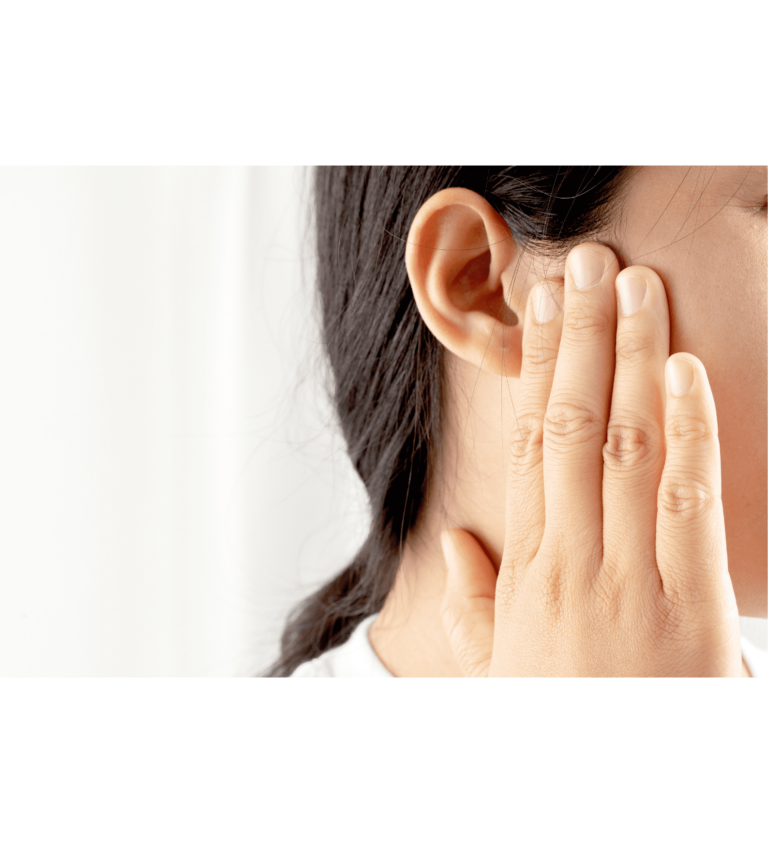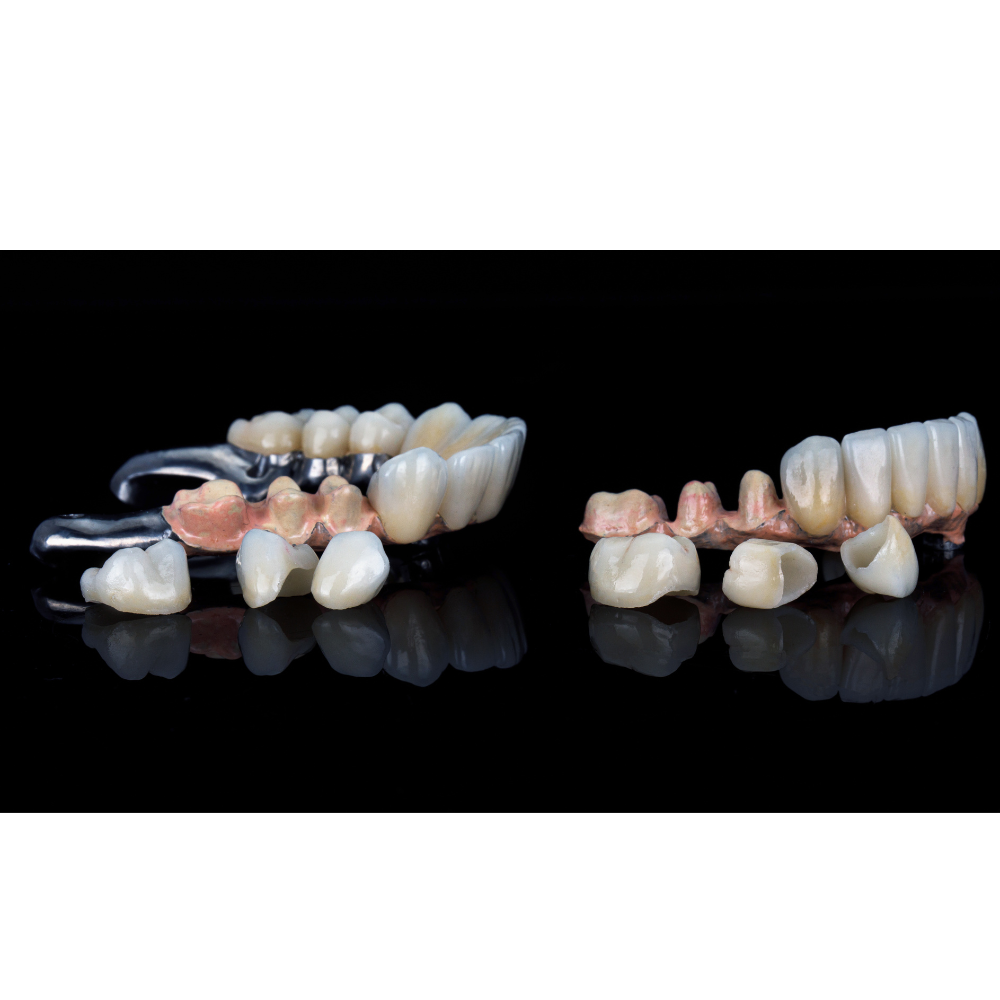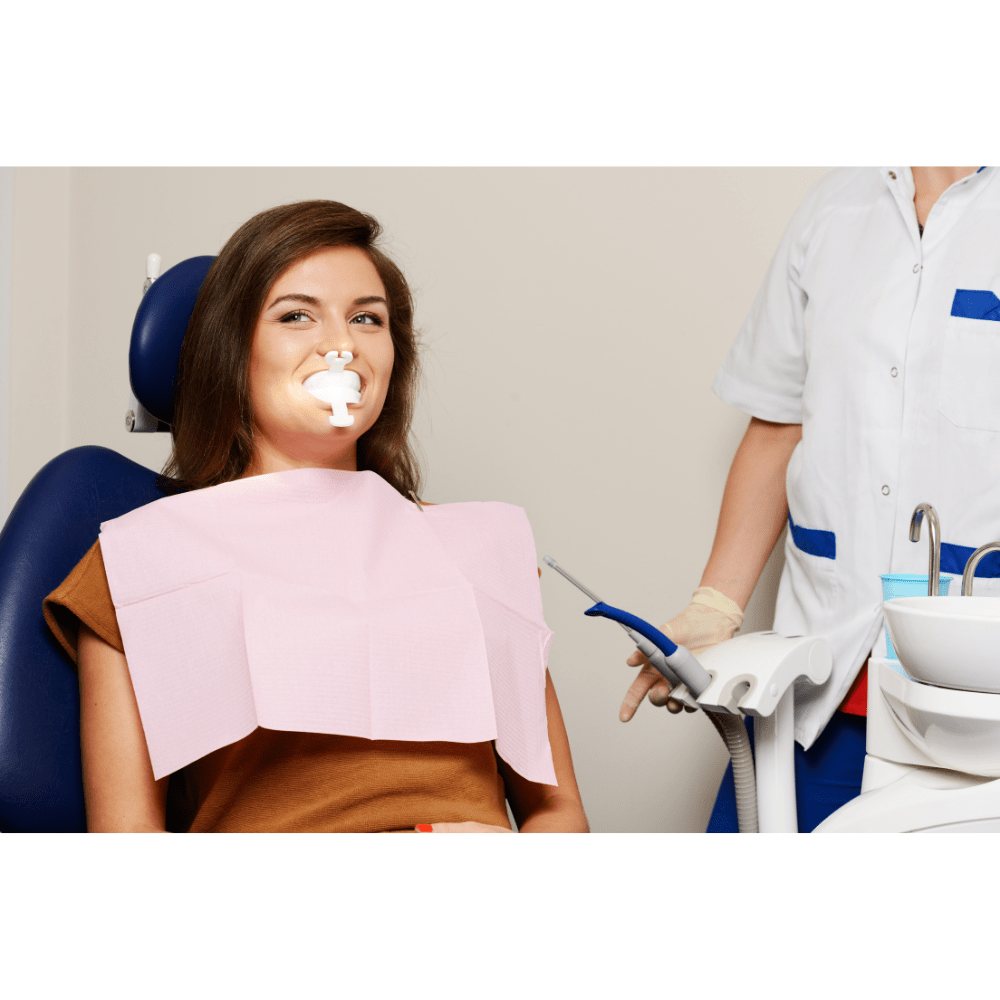Can Wisdom Tooth Cause Earache? | A Dental Guide
Wisdom teeth, often regarded as the final pieces in the puzzle of adult dentition, emerge at a pivotal stage in one’s life between the ages of 17 and 25. These molars can bring along many potential issues, from overcrowding to impaction. However, the intricate web of connections these teeth forge with neighboring structures, including the ears, surprises many of us. Let’s explore the potential relationship between wisdom teeth and earaches. We will first know how ear pain and wisdom teeth are relevant.
How Are Ear Pain and Wisdom Tooth Relevant?
Ear pain and wisdom teeth seem like unlikely companions, but their relevance becomes apparent when considering the network of nerves and tissues in the oral and craniofacial regions. They are located at the back of the mouth and can sometimes become impacted or infected, leading to inflammation and pressure on nearby structures.
Can Wisdom Tooth Cause Earache?
Yes, wisdom teeth can cause earaches. When they become impacted or infected, they can put pressure on nearby structures, including the temporomandibular joint (TMJ) and surrounding nerves.
This pressure can lead to referred pain, where discomfort from the teeth is felt in the ears. The inflammation associated with wisdom tooth issues can exacerbate existing ear problems or even cause new ones. Therefore, earaches can be a symptom of underlying wisdom tooth problems that highlight the interconnectedness of oral and auditory health.
Symptoms
The following are the main symptoms of earache due to wisdom tooth:
– Ear pain or discomfort, often on the same side as the affected tooth.
– Jaw pain, particularly around the area of the wisdom tooth.
– Difficulty opening the mouth fully due to pain or swelling.
– Headaches may refer to pain from the impacted or infected tooth.
– Tenderness or swelling around the jawline or ear.
– Difficulty hearing or ringing in the affected ear.
– Pain or discomfort while chewing or biting down, especially on the side of the impacted wisdom tooth.
– Swelling or inflammation of the gums around the affected tooth.
– A foul taste or odor in the mouth can indicate infection associated with the wisdom tooth.
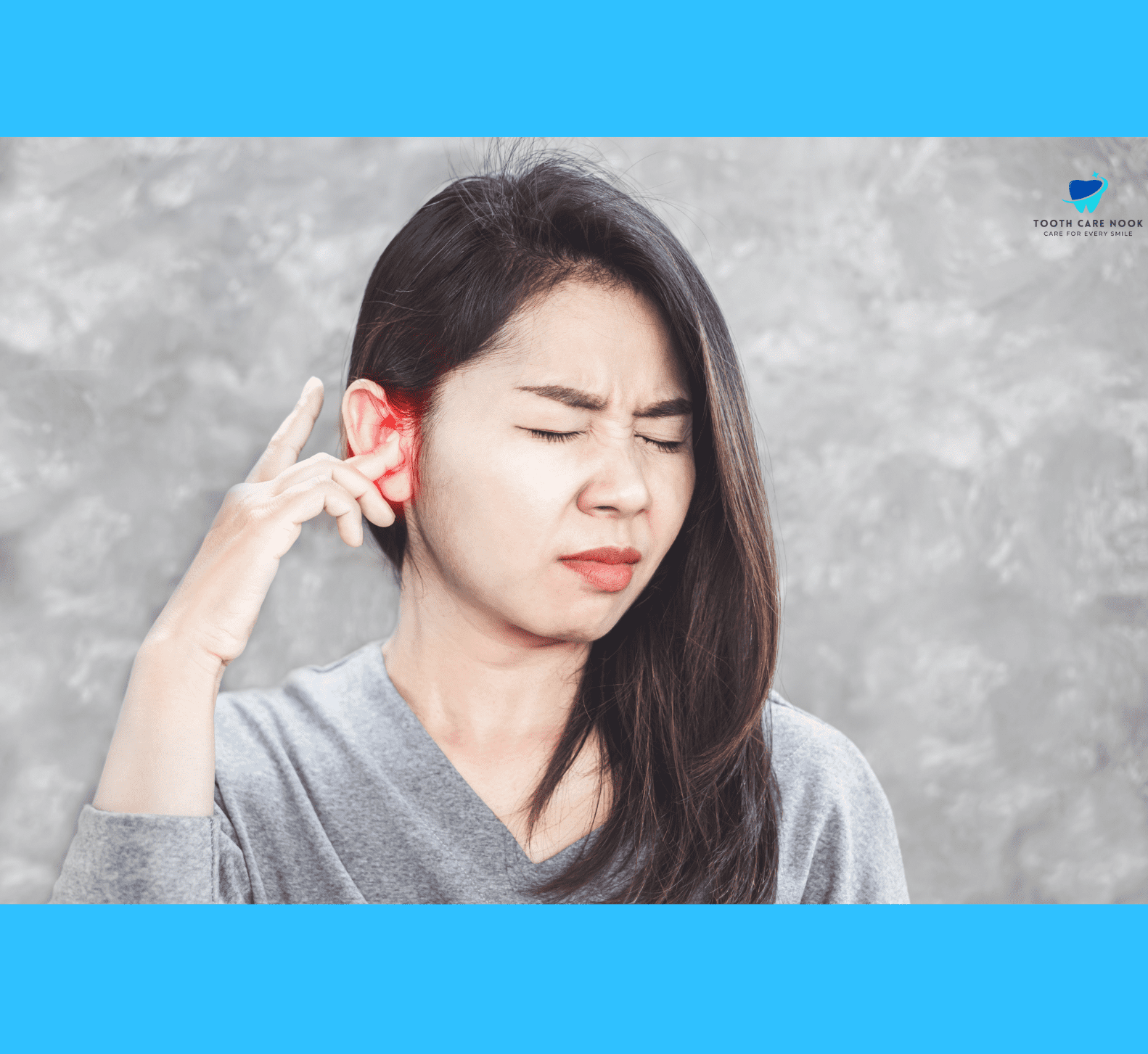
Ways to Get Relief
To get relief from earache caused by wisdom tooth,
- Applying over-the-counter numbing gels or creams directly to the gums around the affected wisdom tooth can help alleviate ear pain associated with it.
- Taking non-prescription pain relievers can help reduce both ear and tooth pain caused by wisdom tooth problems.
- Applying a warm compress to the jaw area near the affected tooth can help relax muscles, reduce inflammation, and alleviate ear pain.
- Over-the-counter ear drops designed to relieve ear pain can provide targeted relief if the earache is directly related to wisdom tooth issues.
- Elevating the head while sleeping can help reduce pressure on the wisdom teeth and alleviate associated ear pain.
- Steering clear of hard, crunchy, or excessively chewy foods can prevent aggravating the wisdom teeth and exacerbating ear pain.
Other Expected Problems Related to Wisdom Tooth
The following are some other problems that a wisdom tooth can cause:
– Periodontal disease.
– Sinus problems.
– Jaw stiffness or pain.
– Impacted wisdom teeth.
– Crowding of other teeth.
– Cysts or tumors in the jaw.
– Nerve damage.
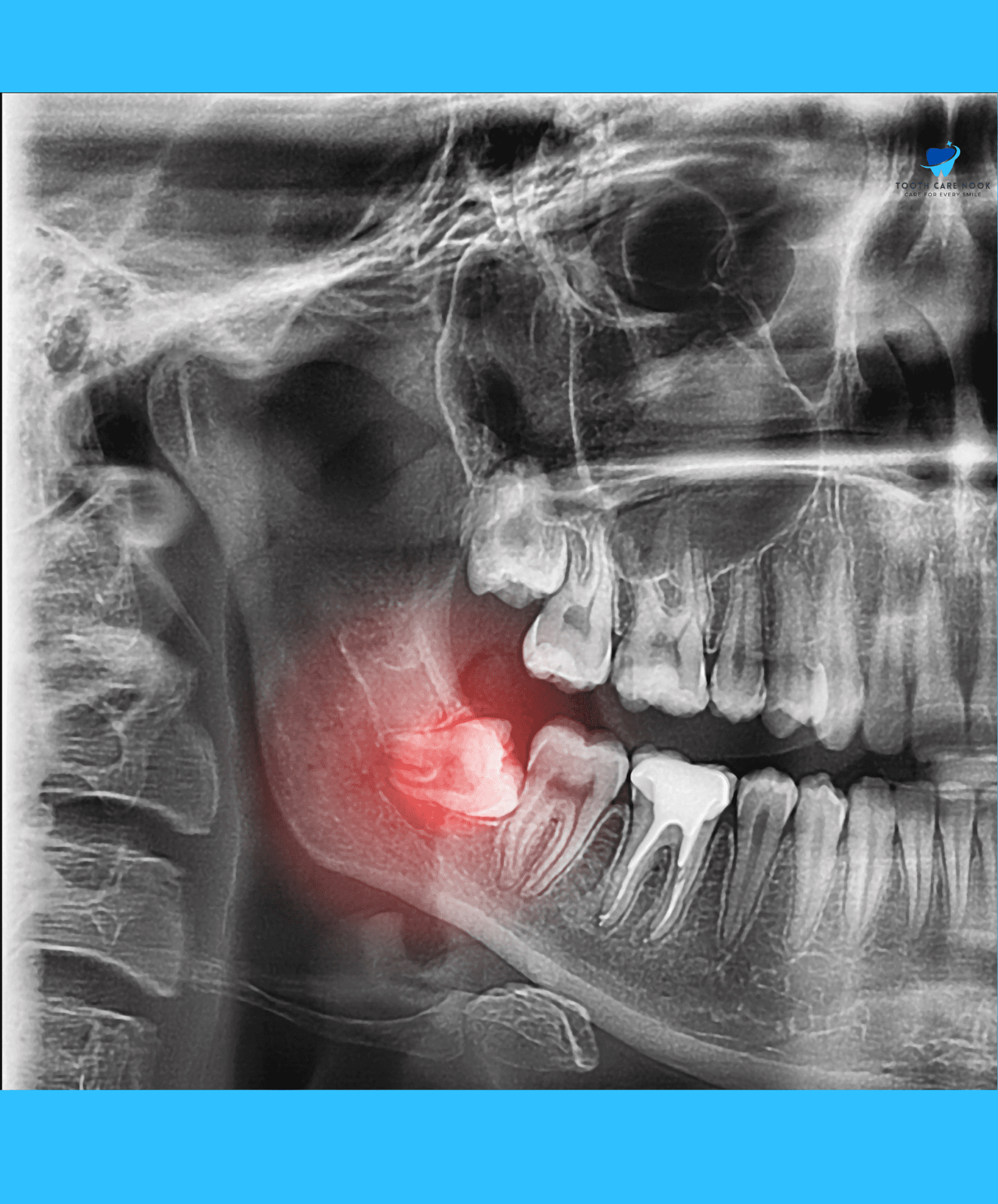
FAQs
Can Wisdom Teeth Cause Sore Throat?
Yes, wisdom teeth can cause a sore throat. As they become impacted or infected, they can lead to inflammation and swelling in the throat. This inflammation can irritate your throat which leads to discomfort, pain, and difficulty swallowing.
If your teeth are located near the back of the mouth, they can press against the throat which increases soreness. Therefore, a sore throat can be a symptom of underlying wisdom tooth issues.
Can Wisdom Teeth Cause Pressure in Ears?
Yes, wisdom teeth can cause pressure in the ears. When they emerge, they can sometimes exert pressure on nearby structures which includes the jawbone and surrounding nerves. This pressure can radiate to the ears which leads to discomfort or a sensation of fullness.
Impacted wisdom teeth, which don’t fully emerge from the gums, can cause further complications. Impaction can create a space where bacteria accumulate and lead to infection and inflammation. This inflammation can affect the surrounding tissues which includes those connected to the ears, causing pressure or discomfort.
Can Wisdom Teeth Cause Tonsillitis?
Wisdom teeth themselves do not directly cause tonsillitis. However, they can indirectly contribute to its development. When they partially emerge or become impacted, they create pockets where food particles and bacteria can accumulate.
These areas can become breeding grounds for bacteria which leads to infections such as pericoronitis, which is an infection around the wisdom tooth. If the infection spreads to the nearby tonsils, it can contribute to tonsillitis, which is inflammation or infection of the tonsils.
Why Do My Ears and Teeth Hurt on One Side?
Pain in one side of both the ears and teeth occurs due to referred pain from a common source or interconnected nerves. Dental issues like cavities, abscesses, or gum disease can radiate pain to the ear.
Similarly, problems with sinus infections, ear infections, neuralgia, or throat infections can also cause pain that spreads to both the ears and teeth on one side of the face. This shared nerve pathway or proximity of affected structures can lead to overlapping pain sensations.

